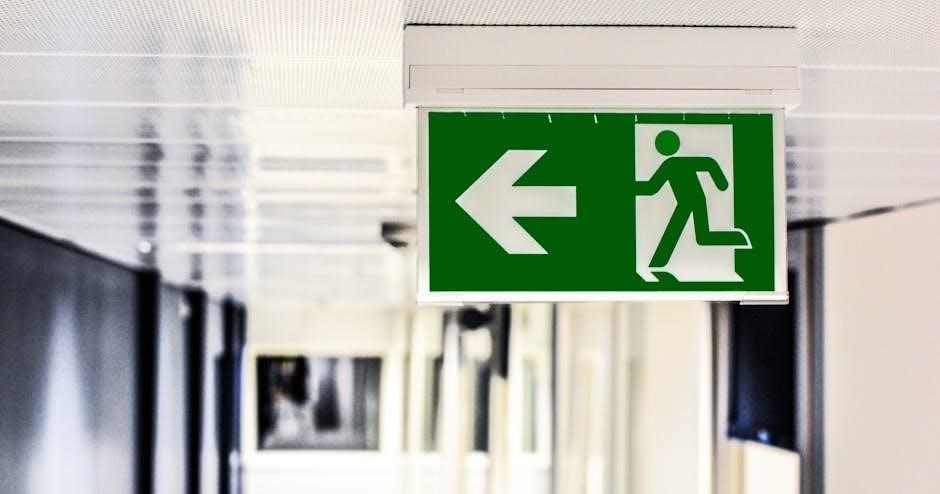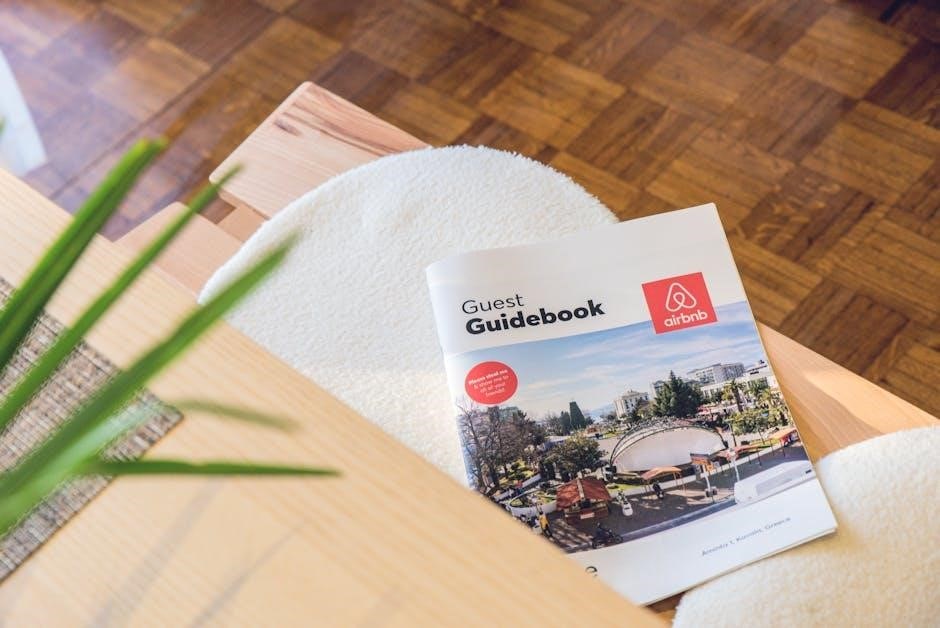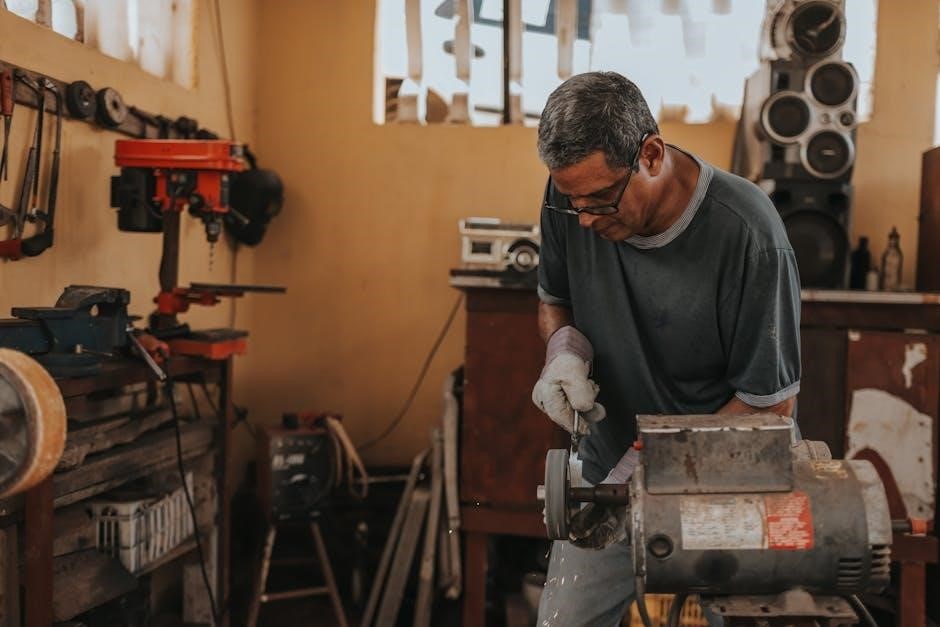
Blacksmithing is a vital crafting profession that involves shaping metals into powerful weapons and armor. It pairs well with Mining, providing essential materials for progression. A solid leveling guide ensures efficient skill advancement, helping crafters unlock epic items and specializations while optimizing gold usage. This guide covers the fundamentals, materials, and strategies for mastering Blacksmithing from apprentice to artisan levels, making it a cornerstone for any aspiring craftsman.
What is Blacksmithing?
Blacksmithing is a crafting profession that involves shaping and molding metals to create weapons, armor, and other essential items. It requires a forge and anvil to craft goods, making it a cornerstone skill for equipping characters. Blacksmiths use ores and metals like copper, bronze, and iron to produce gear, often pairing with Mining to gather resources. The profession is vital for classes like warriors and paladins, who rely on plate armor and weapons. Blacksmithing progresses through skill levels, starting as an Apprentice and advancing to Artisan; Trainers in major cities teach new recipes, while higher levels unlock specialized items. This profession is both practical and profitable, enabling crafters to support their progression and earn gold. It’s a long-term investment in character development and economy.
Importance of Blacksmithing in Game Progression
Blacksmithing is a cornerstone profession for equipping characters with high-quality weapons and armor, essential for progression. It enables crafting gear tailored to specific classes, like warriors and paladins, who rely on plate armor. Blacksmiths can create unique items like Arcanite Skeleton Keys and Runed Copper Rods, supporting other professions. High-level crafting unlocks epic items, providing a competitive edge. Additionally, blacksmithing pairs with Mining, reducing material costs and enhancing efficiency. Proficiency in this skill not only accelerates character development but also boosts economic power, as crafted items are in high demand. Mastering blacksmithing ensures self-sufficiency, making it a vital skill for any serious player aiming to excel in the game.

Getting Started with Blacksmithing
Blacksmithing begins by learning the skill from a trainer in major cities. Pair it with Mining for resource gathering. Start crafting with Copper Bars and Rough Stone, essential for early progress. Choose a class like Warrior or Paladin to maximize utility. Invest in a forge and anvil to craft effectively. This foundation sets the stage for advancing through the ranks and unlocking higher-tier recipes.
Choosing the Right Class for Blacksmithing
Blacksmithing is ideal for classes requiring plate armor and powerful weapons, such as Warriors and Paladins. Shamans can also benefit, especially for enhancement-focused builds. While any class can learn Blacksmithing, plate-wearing classes gain the most utility. Pairing it with Mining ensures resource efficiency. This profession is essential for crafting gear and enhancing equipment, making it a cornerstone for melee-focused characters. Warriors benefit from weapon crafting, while Paladins can create holy-enhanced plate armor. Shamans, though less common, can craft items for their specific needs. Choosing the right class maximizes the profession’s potential, ensuring optimal progression and gear customization.

Apprentice Level (1-75)
The Apprentice level (1-75) is the foundation of Blacksmithing, where you learn basic recipes to craft simple weapons and armor. Trainers in major cities teach essential skills, starting with Copper-based items like Copper Axes and Rough Stone weapons. Materials like Rough Stone and Copper Bars are crucial during this phase. Crafting Coarse Grinding Stones early on is recommended, as they are needed later. This stage focuses on building proficiency with basic metals and tools, ensuring a smooth transition to more complex recipes. Keeping a stockpile of materials like Bronze Bars and Silver Bars will prepare you for the next stages. This level sets the groundwork for mastering higher-tier crafting, making it vital to progress systematically and efficiently.
Journeyman Level (75-150)
The Journeyman phase (75-150) expands your Blacksmithing skills, introducing more complex recipes for weapons and armor. At this stage, you’ll craft items like Bronze and Iron weapons, which require materials like Heavy Stone and Iron Bars; Trainers in major cities can teach higher-tier recipes, enabling you to create more durable gear. Crafting Steel Bars becomes essential for later stages, so stockpiling these is advisable. This level also introduces the use of Coal, a critical component for refining metals. Balancing crafting with material gathering ensures steady progression. Recipes like the Silver Gauntlets and Chain Belt highlight the growing versatility of your skills, preparing you for the Expert level and beyond.

Blacksmithing Leveling Guide
Mastering Blacksmithing requires a strategic approach to leveling, focusing on essential materials and efficient crafting. Pairing with Mining ensures a steady supply of ores, reducing costs and time. This guide outlines the optimal path from apprentice to artisan, emphasizing key recipes, material management, and skill progression to unlock advanced items and specializations.
Level 1-75: Apprentice Stage
The apprentice stage (1-75) is the foundation of Blacksmithing, where you learn basic crafting techniques. Start by crafting simple items like Copper Rods and Rough Stone weapons. Use Copper Bars and Rough Stone, which can be obtained through Mining or purchased from vendors. As you progress, unlock recipes for Bronze Bars and Coarse Grinding Stones. These materials are crucial for crafting better gear. Focus on leveling Mining alongside Blacksmithing to ensure a steady supply of ores. By reaching level 75, you’ll have the skills to craft more complex items and prepare for the journeyman stage. This phase emphasizes building a solid material base and mastering fundamental recipes.
Level 75-150: Journeyman Stage
At the journeyman stage (75-150), you refine your skills by crafting more advanced items like Silver Rods, Heavy Grinding Stones, and Iron Weapons. Use Iron Bars and Steel Bars, often requiring Coal for crafting. Recipes like Runed Iron Rods and Green Iron Leggings become available, helping you gain consistent skill points. Visit trainers like Bengus Deepforge in Ironforge or Saru Steelfury in Orgrimmar to learn higher-tier recipes. Focus on crafting items in demand, such as weapon repairs or belt buckles, to optimize gold usage. This phase is crucial for building a strong foundation before advancing to expert-level crafting. Ensure you stockpile materials like Heavy Stone and Gold Bars to maintain progress and efficiency in reaching level 150.
Level 150-225: Expert Stage
Reaching the expert stage (150-225) requires mastery of advanced techniques and materials. You’ll craft items like Thorium Bracers, Enchanted Battleplate, and Arcanite Bars, which are highly sought after. Visit Brikk Keencraft in Booty Bay to unlock expert recipes. Thorium Bars and Arcane Crystals become essential, alongside Enchanted Leather for high-end gear. This stage introduces complex patterns, demanding precise material management. Focus on crafting in-demand items to maintain gold flow and minimize waste. Specialization options emerge, allowing you to tailor your craft to market needs. Ensure a steady supply of Heavy Stone and Coal to progress smoothly. This phase is pivotal for transitioning to the artisan level and unlocking epic crafting potential. Plan your resource usage carefully to avoid delays in reaching 225.
Level 225-300: Artisan Stage
Reaching the artisan stage (225-300) marks mastery of advanced blacksmithing techniques. At this level, you’ll craft high-end items like epic weapons and specialized armor. Visit Brikk Keencraft in Booty Bay to learn expert recipes. Thorium Bars, Arcane Crystals, and Enchanted Leather become critical materials. Crafting epic items, such as the Arcanite Skeleton Key, is a hallmark of this stage. Specialization options refine your crafting focus, whether it’s weapons, armor, or unique items. Managing material costs and optimizing recipes is crucial to avoid waste. This stage requires a steady supply of rare materials and consistent crafting to reach 300; It’s the pinnacle of blacksmithing, enabling you to create gear for high-level content and dominate the in-game economy with exclusive items.

Materials and Crafting

Essential materials include ores, bars, and fluxes like Copper, Bronze, Iron, and Thorium. Crafting requires precise planning to optimize resource use and achieve desired item quality efficiently.
Essential Materials for Leveling
To progress efficiently in Blacksmithing, you’ll need a steady supply of ores and bars. Copper and Tin ores are crucial for the early stages, crafted into Copper and Bronze bars. Iron and Coal become essential as you advance, with Steel bars being a staple for mid-level crafting. At higher levels, Thorium and Arcane materials like Arcane Dust are required for epic items. Fluxes like Bismuth and Echoing Flux enhance crafting success. Gathering these materials through Mining or purchasing them from vendors ensures a smooth leveling experience. Proper planning and stockpiling of these resources are vital to avoid delays and optimize your crafting workflow.
Crafting Recipes and Their Importance
Crafting recipes are the backbone of Blacksmithing, enabling the creation of essential items like weapons, armor, and tools. Early recipes, such as the Runed Copper Rod, are crucial for skill progression and supporting other professions like Enchanting. As you level up, recipes like Coarse Grinding Stones and Thorium Bars become vital for crafting higher-tier items. Epic recipes, such as those requiring Inert Mantle of Nightmares, unlock powerful gear. Each recipe serves a specific purpose, whether it’s skill progression, gold generation, or equipping your character. Understanding and prioritizing these recipes ensures efficient leveling and resource management, making them indispensable for any blacksmith aiming to master their craft and contribute to their team’s success.
Shopping List for Blacksmithing
A well-prepared shopping list is essential for efficient Blacksmithing progression. Key materials include Copper Bar (150x), Bronze Bar (140x), Iron Bar (230x), and Steel Bar (190x). Additionally, stock up on Rough Stone (150x), Coarse Stone (95x), and Heavy Stone (105x). For higher-level crafting, gather Silver Bar (5-10x) and Gold Bar (5x). Don’t forget Green Dye (35x), available from Tailoring and Leatherworking vendors. These materials ensure smooth progression through the levels. Plan ahead to avoid delays and optimize your gold spending. This list covers the essentials for crafting weapons, armor, and tools, helping you stay prepared for every stage of your Blacksmithing journey.
![]()
Blacksmithing Specializations
Specializations enable blacksmiths to focus on specific crafting paths, enhancing efficiency in weapon or armor creation. Available at higher skill levels, they unlock advanced recipes and bonuses, optimizing progression.
Understanding Specializations
Specializations in blacksmithing allow players to focus on specific crafting paths, such as weapons or armor. These specializations become available once the blacksmith reaches skill level 200 and character level 40. Players can choose between two primary specializations: Weaponsmith or Armorsmith. Weaponsmiths excel in crafting high-quality weapons, while Armorsmiths focus on creating superior plate armor. Each specialization further branches into sub-specializations, offering unique bonuses and crafting opportunities. Specializations enhance crafting efficiency and unlock advanced recipes, making them crucial for maximizing progression. By selecting the right specialization, players can tailor their crafting experience to suit their playstyle and in-game goals, ensuring optimal results in their blacksmithing journey.
Choosing the Right Specialization
Selecting the right specialization in blacksmithing depends on your character’s role and progression needs. Weaponsmiths are ideal for classes reliant on melee weapons, offering enhanced weapon crafting capabilities. Armorsmiths, on the other hand, benefit classes that wear plate armor, such as warriors and paladins, by providing superior armor crafting options. Consider your character’s primary function in raids or PvP to make an informed decision. Additionally, sub-specializations within these paths can further tailor your crafting expertise. It’s important to plan ahead, as changing specializations later can be costly and time-consuming. By aligning your specialization with your character’s needs, you optimize your crafting efficiency and contribute effectively to your group or guild. This strategic choice enhances both your progression and in-game performance.

Tips for Efficient Leveling
Combine blacksmithing with mining to save gold and time. Use an optimized crafting list to minimize material waste and focus on high-demand items for efficient progression.
Leveling Mining Alongside Blacksmithing
Mining is the most efficient way to gather ores needed for blacksmithing, saving gold and time. Harvesting ores like copper, tin, and iron ensures a steady material supply. Pairing mining with blacksmithing allows crafting essential items without relying on vendors. Focus on farming routes in resource-rich zones to maximize ore collection; This dual approach ensures consistent progress, reducing delays caused by material shortages. Efficiently leveling mining alongside blacksmithing is crucial for crafting high-demand items and progressing smoothly through the levels. By managing both professions, you can maintain a balanced workflow, ensuring a steady supply of materials for crafting weapons and armor. This synergy is key to mastering blacksmithing efficiently.
Optimizing Gold Usage
Optimizing gold usage is crucial for efficient blacksmithing progression. Prioritize crafting recipes that provide the most skill points per gold spent, avoiding unnecessary expenses. Focus on materials like copper, tin, and iron, which are cost-effective for early leveling. Use mining to gather ores directly, reducing reliance on vendors. Budget for essential items like coarse grinding stones and alloys, as they are frequently needed. Crafting in-demand items for other players can generate additional gold, helping to sustain your progression. Plan your crafting schedule to minimize waste and maximize skill gains. By strategically managing your gold, you can level blacksmithing efficiently without depleting your resources. Smart decisions ensure a balanced approach to skill advancement and financial stability.

Advanced Blacksmithing
Advanced blacksmithing involves mastering high-level crafting techniques to create epic items and specialized gear. It requires expertise in perfecting recipes, understanding intricate metal properties, and optimizing resource use to craft legendary equipment efficiently.
Crafting Epic Items

Crafting epic items is the pinnacle of blacksmithing, requiring rare materials and mastery of advanced techniques. Epic items like the Inert Mantle of Nightmares and Nightmare Seeds are obtained through specific quest chains or purchased from vendors like Rix Xizzix in Booty Bay. These items often require multiple components, such as Thorium Bars, and demand precise crafting to unlock their full potential. Epic gear is crucial for endgame content, providing unparalleled strength and durability. Blacksmiths must balance resource usage and skill mastery to create these legendary pieces, ensuring each craft is both efficient and exceptional in quality. This stage of blacksmithing showcases the true artistry and dedication of a master craftsman.
Mastering Blacksmithing Specializations
Mastering blacksmithing specializations requires strategic planning and skill. Specializations like Weaponsmith or Armorsmith unlock exclusive recipes, enhancing your crafting versatility. At skill level 200, blacksmiths can choose between Arms and Armor, each offering unique benefits. Weaponsmiths excel at crafting powerful weapons, while Armorsmiths focus on durable mail and plate armor. Specializations also influence stat builds; for example, a general agility build suits blacksmiths, while Mastersmiths may opt for balanced strength and agility. Wise use of Knowledge Points is crucial, as they enhance crafting efficiency. Guides like the War Within Specialization Guide provide detailed insights, helping blacksmiths optimize their builds and crafting strategies for maximum effectiveness in both PvE and PvP scenarios.